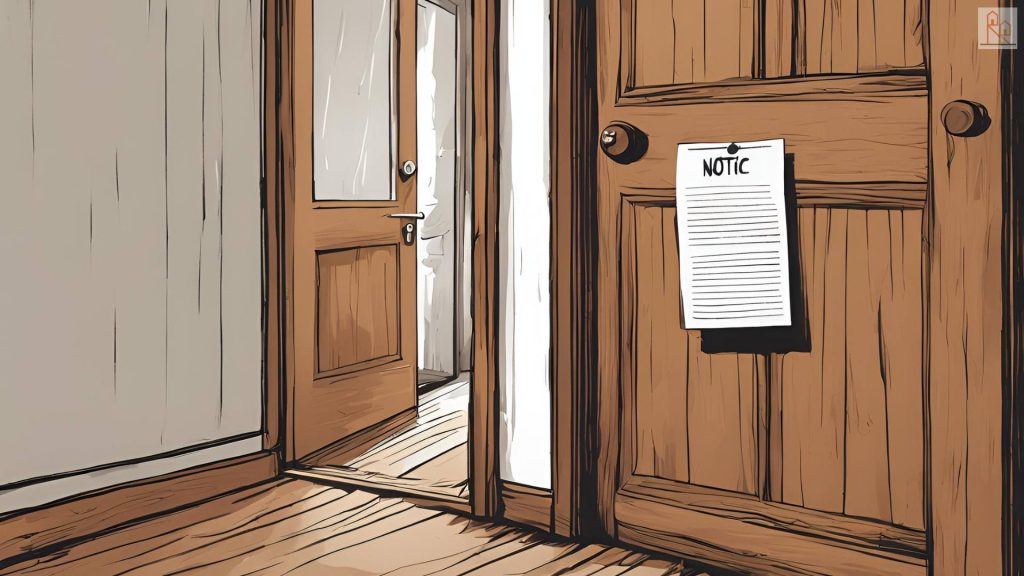
WASHINGTON STATE RESIDENTIAL LANDLORD-TENANT ACT RCW 59.18 (RLTA)
Owners and tenants have legal responsibilities to each other. The Washington State Residential
Landlord- Tenant Act (RCW 59.18, RLTA) outlines the rights and responsibilities for landlords and
tenants.
This summary of Death of a Sole Occupant rules to keep in mind during a lease is designed to help owners gain an understanding of the state rules and regulations affecting housing. This information should not be used as a substitute for legal advice.
Termination of Tenancy:
Washington is a “Just Cause Eviction” (JCE) State.
It requires the landlord to have a legal reason or just cause to terminate your month-to-month rental agreement or decline to renew your lease. The landlord must serve you with a written notice, commonly called a Notice to Terminate Tenancy and state specific just cause, as outlined in RCW 59.18.650.
Those legal reasons include:
- When tenant pays rent late and receives a 14-day pay or vacate notice (or 30-Day POV for CARES ACT Properties).
- When tenant is in violation of a MATERIAL TERM of the rental agreement and receives a 10-day comply with the rules in your rental agreement or vacate and you fail to comply.
- When tenant is committing waste, nuisance or illegal drug/gang activity and receives a 3-day notice to vacate. This notice does not have opportunity to comply.
- When the owner or member of family wants to occupy the unit and serves the tenant a 90-day notice to vacate.
- When the owner elects to sell the dwelling unit and serves the tenant a 90-day notice to vacate.
- When the owner wants to demolish, substantially rehabilitate, or change use and serves the tenant a 120-day notice to vacate.
- When property has been condemned or deemed uninhabitable by code enforcement and the tenant is served a 30-day notice to vacate.
- When the owner or lessor wants a roommate to vacate and serves the tenant with a 20-day notice to vacate.
- When tenant is a part of a transitional housing program that has expired, and tenant is served a 30-day notice to vacate.
- When tenant fails to comply with signing a new rental agreement and is served a 30-day notice to vacate.
- When tenant intentionally or knowingly omits or give misinformation on their application at the start of tenancy and is served a 30-day notice to vacate.
- When owner has an economic or business reason to end the tenancy and serves the tenant with a 60-day notice to vacate.
- When tenant has received four or more 10-day comply or vacate notices in a 12-month rental period for violation of rental agreement and is served a 60-day notice to vacate.
- When tenant fails to register or disclose, they are a sex offender and is served a 60-day notice to vacate.
- When tenant has sexually harassed the property owner, property manager, employee, or another tenant and served a 30-day notice to vacate.
- When tenant does not comply with applying or signing a rental agreement after the original tenant vacates the unit and is served a 30-day notice to apply or vacate.
Month-to-month Rental Agreement (RCW 59.18.200):
When a tenant wants to end a month-to-month rental agreement, written notice must be given to the landlord.
- The notice must be received at least 20 days before the end of the rental period (the day before the rent is due). The day which the notice is delivered does not count.
- A landlord cannot require a tenant to give more than 20 days’ notice when moving out.
- If a tenant moves out without giving proper notice, the law says the tenant is liable for rent for the lesser of 30 days from the day the next rent is due, or 30 days from the day the landlord learns the tenant has moved out.
- The landlord has a duty to try and find a new renter. If the dwelling is rented before the end of the 30 days, the former tenant must pay only until the new tenant begins paying rent.
- When a landlord wants to end a month-to-month rental agreement, written notice must be given to the tenant and state reason as required by RCW 59.18.650.
- Landlord cannot require a tenant to vacate in the middle of a rental period.
Fixed-Term Leases (RCW 59.18.220):
If the tenant vacates at the expiration of a lease, in most cases it is not necessary to give the landlord a written notice. However, the lease should be consulted to be sure a formal notice is not required. If a tenant stays beyond the expiration of the lease, and the landlord accepts the next month’s rent, the tenant then is assumed to be renting under a month-to-month agreement.
A tenant who vacates before a lease expires is responsible for paying the rent for the remainder of the lease term or until the unit is re-rented.
EXCEPTIONS TO MOVE OUT TIMELINES
Armed Forces Exception (RCW 59.18.200):
A month-to-month tenancy can be terminated with less than 20 days written notice when the tenant is a member of the armed forces (including the National Guard or armed forces reserve), if the tenant receives reassignment or deployment orders that do not allow for a 20-day notice. In these circumstances, the tenancy may also be terminated by the tenant’s spouse or dependent.
Proper Notice to Leave for Leases—Armed Forces Exception (RCW 59.18.220): A lease can be terminated when the tenant is a member of the armed forces (including the National Guard or armed forces reserve), if the tenant receives reassignment or deployment orders, provided the tenant informs the landlord no later than seven days after the receipt of such orders. In these circumstances, the tenancy may also be terminated by the tenant’s spouse or dependent.
Domestic Violence Protection (RCW 59.18.570-590):
If a tenant or a household member is a victim of an incident of domestic violence, sexual assault, unlawful harassment, or stalking, the tenant may:
- Terminate their rental agreement without penalty.
- Change the locks on their unit at their own expense.
- Or has the option to do both.
The tenant must notify the landlord in writing that they or a household member were a victim of one of the above crimes and:
- Provide a copy of a valid order for protection or a report of the incident from a qualified third party to the landlord. Qualified third parties include law enforcement officers, court officials, licensed mental health professionals, doctors, and victim advocates.
- Must terminate the rental agreement within 90 days of the incident leading to the protection order or report to a qualified third party.
- Make the protection order or third party’s report available to the landlord within 7 days of the tenant moving out of the unit or at the same time the tenant gives notice to the landlord that the locks have been changed

